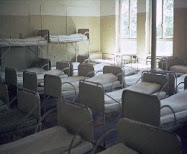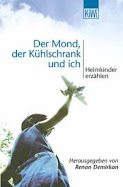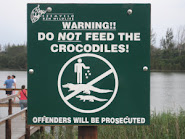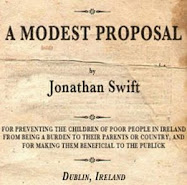The fact that plans are in the pipeline to amend legislation to make the reporting of child abuse to the competent authorities mandatory is very welcome.
To date, there is no legislation in Malta, in contrast to some to the legal state of affairs some other countries, that mandatorily requires the reporting child abuse. As matters stand, that decision is left completely to the person with knowledge of any such abuse.
In an interview in today’s paper, Minister Dolores Cristina could not have been clearer when she states that the reporting of child sex abuse should be made mandatory and any amendments to the current legislation should ensure that the law provides for children’s complete protection.
She adds, “I am all for making sure that legislation covers child abuse completely. Every case of child abuse has to be reported to the police and action has to be taken. When there is a case of alleged child abuse, nobody has a right to protection.
It is in the best interest of children for cases to be reported by whoever is aware of them.”
The comments will certainly be greeted with open arms by many who have been campaigning against the status quo in this respect.
Such legislative amendments, if enacted at the end of the day, would also close a yawning gap between the church and state when it comes to the thorny issue of clergy abuse – an issue that has been so topical over the last month in the lead up to and the aftermath of the Pope’s visit to Malta and his landmark meeting with Maltese abuse victims.
In a bid to contain the damage to the Church’s reputation, following wave after wave of abuse scandals earlier this year, in April the Vatican had issued a new set of guidelines on what bishops should do when confronted with abuse cases.
The guidelines stipulate that where a country requires abuse to be reported, the Church must follow the law of the land and report any such abuse to the civil authorities. The problem in Malta, however, is that there never been any such obligation and as such, the Maltese Church has remained exempt from the rule.
That gap, should the legislative amendments go through, will be closed and, as per the Vatican’s guidelines, the Maltese Church would in future be duty-bound to report any abuse that comes to its attention to the appropriate authorities and no longer handle accusations on its own steam.
It is high time that the issue is dealt with by the government.
To date, there is no legislation in Malta, in contrast to some to the legal state of affairs some other countries, that mandatorily requires the reporting child abuse. As matters stand, that decision is left completely to the person with knowledge of any such abuse.
In an interview in today’s paper, Minister Dolores Cristina could not have been clearer when she states that the reporting of child sex abuse should be made mandatory and any amendments to the current legislation should ensure that the law provides for children’s complete protection.
She adds, “I am all for making sure that legislation covers child abuse completely. Every case of child abuse has to be reported to the police and action has to be taken. When there is a case of alleged child abuse, nobody has a right to protection.
It is in the best interest of children for cases to be reported by whoever is aware of them.”
The comments will certainly be greeted with open arms by many who have been campaigning against the status quo in this respect.
Such legislative amendments, if enacted at the end of the day, would also close a yawning gap between the church and state when it comes to the thorny issue of clergy abuse – an issue that has been so topical over the last month in the lead up to and the aftermath of the Pope’s visit to Malta and his landmark meeting with Maltese abuse victims.
In a bid to contain the damage to the Church’s reputation, following wave after wave of abuse scandals earlier this year, in April the Vatican had issued a new set of guidelines on what bishops should do when confronted with abuse cases.
The guidelines stipulate that where a country requires abuse to be reported, the Church must follow the law of the land and report any such abuse to the civil authorities. The problem in Malta, however, is that there never been any such obligation and as such, the Maltese Church has remained exempt from the rule.
That gap, should the legislative amendments go through, will be closed and, as per the Vatican’s guidelines, the Maltese Church would in future be duty-bound to report any abuse that comes to its attention to the appropriate authorities and no longer handle accusations on its own steam.
It is high time that the issue is dealt with by the government.
Shattered lives
Education, Employment and Family Minister Dolores Cristina is right. Reporting child abuse should be made mandatory, she told The Malta Independent on Sunday yesterday.
As a consequence, all those who in some way or another hide abuse or prevent others from reporting it should be held accountable.
One could go even further and propose that, if and when a register of child abusers is established – and one hopes that it will see the light of day sooner rather than later – people in this register could not be employed by entities or organisations that deal with children. Any employer caught doing this should face a severe penalty. We cannot continue to have situations where child abusers are employed in places where they come in constant contact with children, such as in football nurseries.
So far, the Maltese law does not oblige anyone to report cases of child abuse, be they physical, emotional or sexual. But this is tantamount to being an accomplice in the crime, or hiding the same crime. And this needs to be rectified.
Malta has come a long way in terms of child protection. Over the past years we have had several laws which were either updated or introduced to meet with today’s needs. The Adoptions Act was revised while the Fostering Act was introduced. The Office of the Commissioner for Children was also set up.
Now we need to go another step forward.
In the wake of so many scandals that have rocked the Catholic Church all over the world, including in Malta, the awareness on this type of crime has increased. The adults who have spoken up to say that they were abused by priests when they were children have opened the way for the better safeguarding of today’s children. Their courage is commendable.
Of course, it is not only those children under the care of the clergy that are abused. There are many other children who unfortunately are also abused in their family surroundings, some even by their parents and close relatives.
Often, these cases are not reported. Often, others would know that abuse is being committed, and yet they keep their mouth shut either because they fear the same abuse or simply to keep matters within the confines of the family. And so the abuse continues, sometimes getting worse, and many more lives are shattered.
By reporting abuse – and by putting the onus on people who know it is happening to report it – there is a better chance that it will stop. Although even one instance of abuse is despicable and could change a person’s life, if this abuse is repeated and constant, matters become even worse. And therefore the earlier abusers are reported, the better the chance that the abuse stops and the perpetrators are brought to book.
Although there should not be any need for having a law to report abuse – any person with a conscience should feel compelled to go to the authorities if he or she knows abuse is taking place, particularly on an innocent child – such legislation is necessary as it will hopefully push all those who would otherwise keep mum to speak up.



















Geen opmerkingen:
Een reactie posten